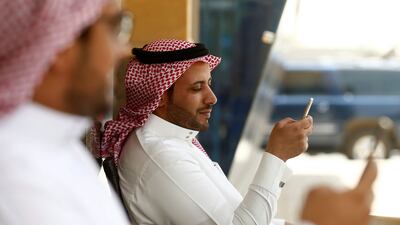On Friday, the Combatting Terrorism Centre at West Point reported that a convicted 1993 World Trade Center terrorist had written a 250-page essay criticising ISIL. Ramzi Yousef, according to an interview with his lawyer published by the CTC Sentinel, seeks to repudiate ISIL and expose it as an ideology that deviates from Islamic texts.
If published, Yousef’s essay will be one in a long list of similar publications and debates emerging in recent years. A notable example is a piece published by a former associate of Al Qaeda, an Egyptian doctor known as Sayyid Imam Sharif, in 2007.
Sharif had published several books on online forums, two of which are among the very top books jihadists read. Even though Sharif retracted his views, Abu Bakr Al Baghdadi’s top cleric, Abu Ali Al Anbari, who was killed last March, found his previous views so foundational that he nonetheless referenced him frequently in his sermons.
Sharif, a long-time associate of Osama bin Laden and Ayman Zawahiri, prohibited several jihadist practices, including the killing of tourists in Muslim countries, conducting jihadi activities in Egypt and the carrying out of terrorist attacks in non-Muslim countries by residents or visitors. He argued, for example, that when a Muslim obtains a visit visa or citizenship, those documents must be regarded as contracts implying trust a Muslim is explicitly not allowed to breach.
Another example of such criticism is a series of interviews with Abdullah Al Miyahi, an Iraqi cleric currently in prison. The interviews, which he gave from prison, delve deep into the ideology of ISIL and like-minded groups. He provides a detailed account of how such thinking evolved in Iraq since the invasion in 2003.
Over the past three years, social media emerged as an important platform amplifying such voices. For the first time in modern history, it is possible to observe debates and differences among jihadists in real time on social media. Attacks and counter-attacks, accusations and responses, revelations and repudiations can be studied to properly understand their world view in a way that was not available before.
Despite the historic opportunity, little has been done to utilise it. The value of highlighting these differences is two-fold.
First, these writings and statements offer insider understanding of one of the most insidious currents sweeping the region.
In the past, jihadists would refrain from publicising differences for various reasons, including the concept of allegiance to the cause or the lack of platforms now available. Self-censorship was recognised by jihadists such as Abu Musab Al Suri as a problem that hampers self-critique since the 1980s in Afghanistan. That is no longer the case and “everything is now in the open”, in the words of one jihadist cleric in Syria.
Second, those intra-jihadist differences are more effective in convincing young Muslims of the problems those extremists pose. In 2013, for example, clashes that erupted after the fallout between Jabhat Al Nusra and ISIL in Syria led some not only to desert both of them but to question the logic that led them to join Jabhat Al Nusra in the first place.
Some of those who had travelled to Syria thought they would find a unified jihadist front against the regime.
Instead, they found groups that share the same ideology and yet declare each other apostates or deviants. They cannot coexist, despite their similarities, much less represent the interests of the wider communities. Saudi authorities found such disillusionment to be common among early returners.
In arguing for publishing Yousef’s 250 pages, the lawyer, Bernard V Kleinman, said: “If you can create doubt in just one wannabe ISIL recruit about the religious legitimacy of ISIL’s actions, and by doing that save lives, then I think it would be worth [publishing it].”
Creating doubt in recruits or potential recruits is a sure way to counter extremism effectively.
Mubin Shaikh, a Canadian expert on jihadist extremism, and himself a former radical Islamist, is a strong advocate of the method. If there is one effective way to create doubt, it is by highlighting how these groups share the same ideology but are constantly at each other’s throats, physically and ideologically.
The logic for this is simple: the appeal of some religious currents can significantly recede when their ideological cohesion and simplicity are shown to be a myth. This was true for Sufism and Salafism in the past, especially before their internal fracture or wide scrutiny. And it can be done to Salafi jihadism if there is an effort to counter it or speed up the process of exposing its contradictions.
Highlighting internal antagonism also erodes one’s belief in jihadists' effectiveness and sincerity, arguably two of the most essential sentiments that drive people to join or just sympathise with radical Islamists.
Plenty of material has been produced over the past decade that individuals or institutions can use to understand and push back against radical narratives. These materials are far more effective in exposing incoherence than long speeches by traditional clerics or government propaganda.
Hassan Hassan is a senior fellow at the Tahrir Institute for Middle East Policy and co-author of ISIS: Inside the Army of Terror
On Twitter: @hxhassan

